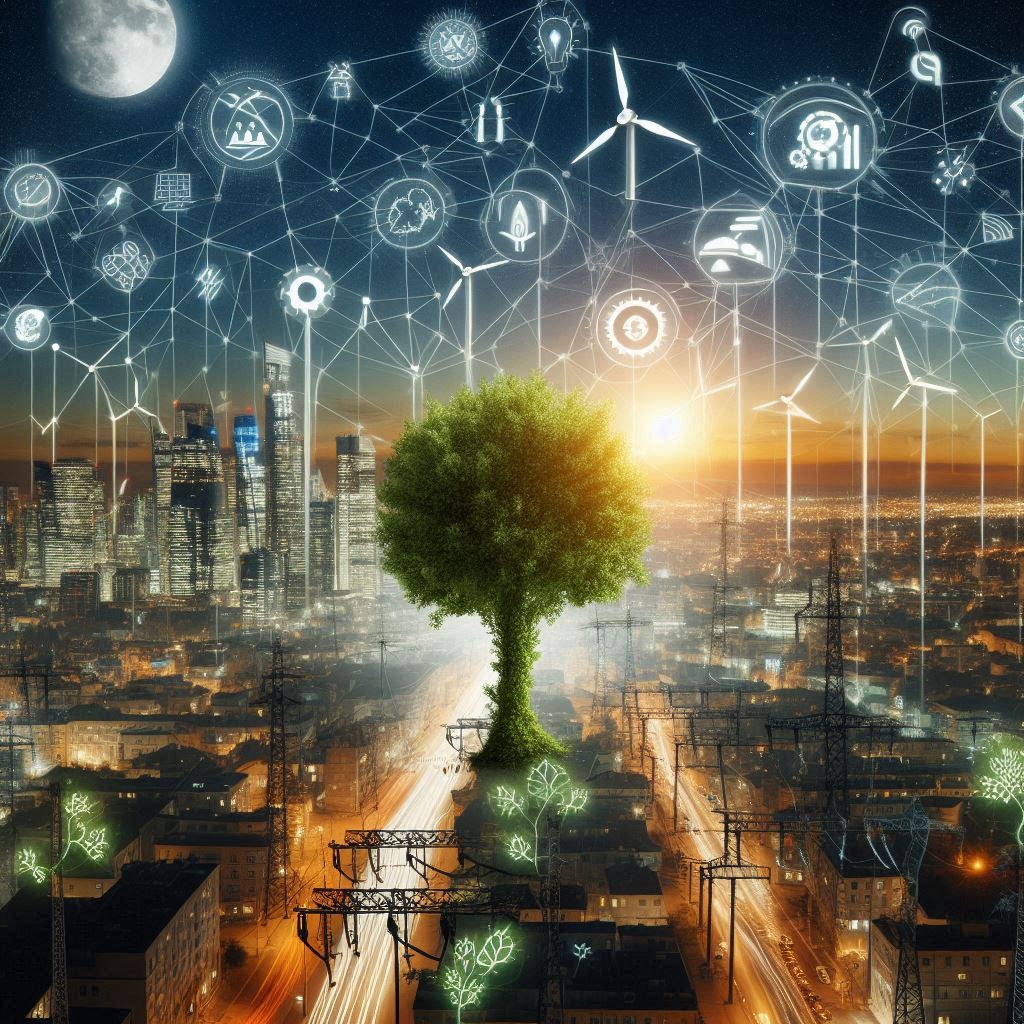The first transformation is related to energy efficiency regardless of energy source, which means how much we could reduce waste when using energy. Contrary to common belief, it is absolutely not true that energy consumption is inextricably linked to endless economic and population growth. Indeed, efficiency is the most effective lever so far. Since the beginning of the century, the world’s GDP has doubled but energy consumption has increased only by 50%. In Europe, the energy needed to generate a unit of GDP has dropped by two-thirds and this process happened in response to the 1970s oil crises, even before we started to talk about climate change. Advances in technology, such as systems for managing heat and electricity in offices and households, are producing a further leap.
CHART 1 – The global GDP increase ($) and primary energy consumption increase (TWh) from 2000 to 2023
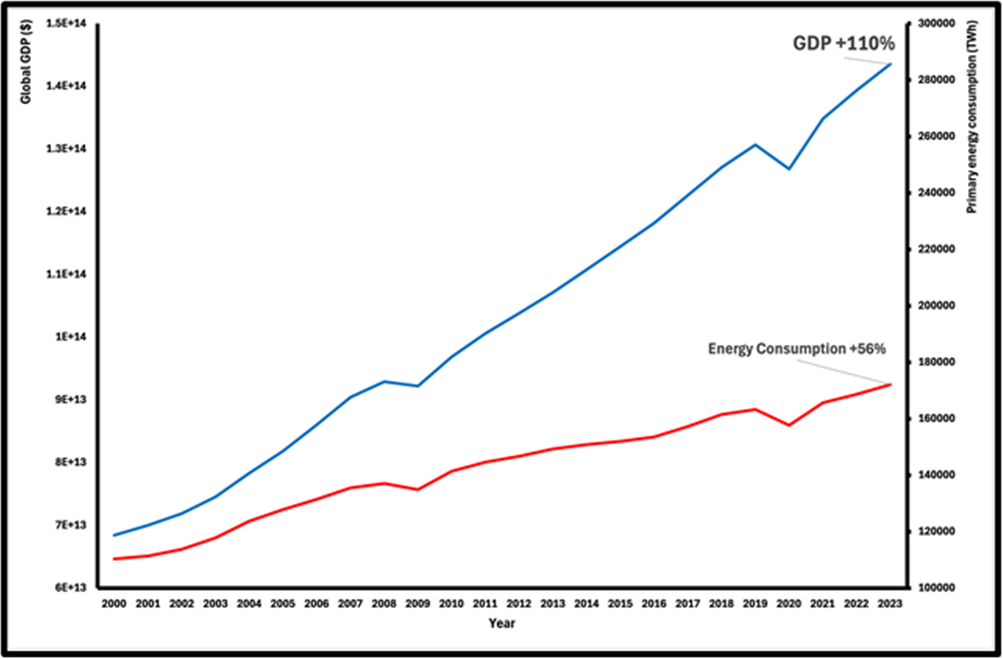
SOURCE: Vision on University of Oxford data
The second transformation focuses on the growing share of energy consumed in the form of electricity. While distribution requires huge initial investments in grids and battery storage, it offers far greater flexibility than systems relying on gas pipelines and oil tankers. However, progress here has been slower than expected. In 25 years, the global share of electricity in energy consumption has risen from 15% to only 19%. The disparity among nations is enormous: while China has doubled its reliance weight of electricity on final consumption, the weight in the United States stayed almost the same, signalling infrastructure challenges.
CHART 2 – Evolution of the share of energy consumption covered/ delivered by electricity (%)
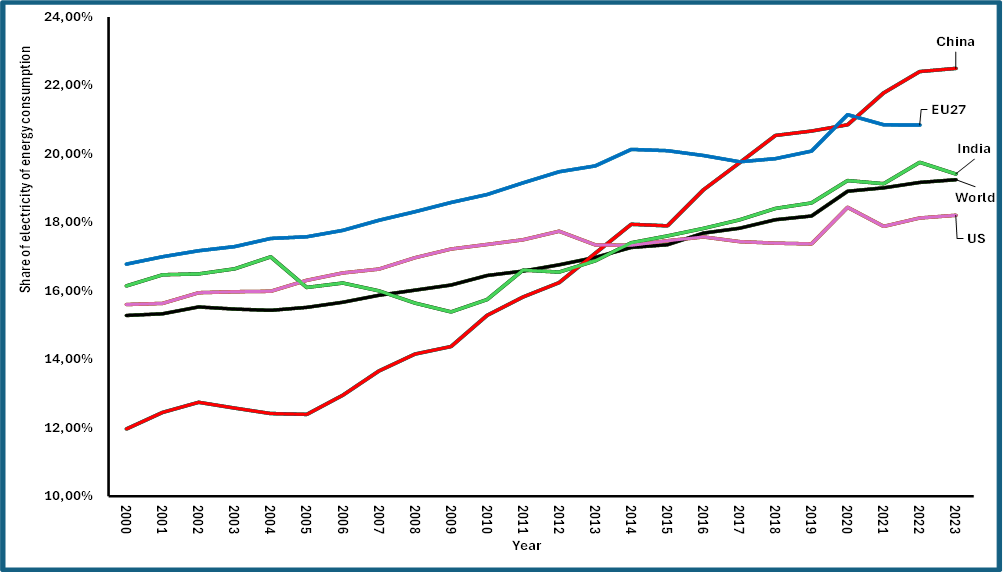
SOURCE: Vision on University of Oxford data
Another topic has dominated energy debates in recent years is renewable energy. The share of electricity from solar and wind power has grown significantly in recent years and this trend is likely to continue as production costs fall, where the estimates on the cost of transitions are ignored. Yet, this growth hides two issues at least as far as Europe is concerned: First, the increased reliance on renewables has often been offset by reduced nuclear energy use. Second, it exposes Europe to the dependence on a single nation - China - for key technologies including solar panels, turbines, and batteries.
CHART 3 – Solar PV manufacturing capacity by country and region, 2021-2027
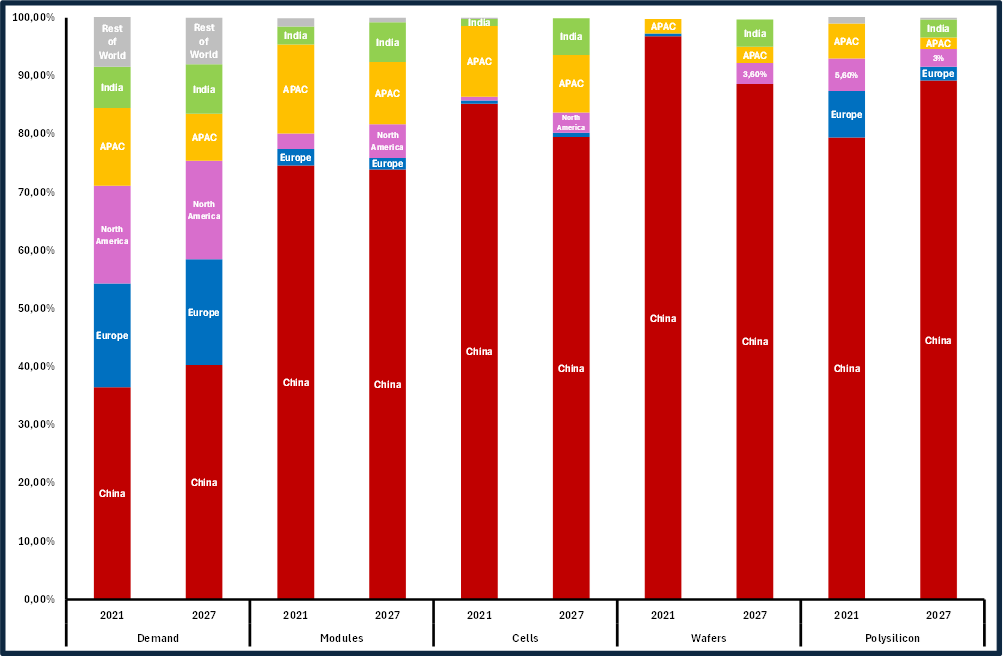
SOURCE: Vision on IEA data
The fourth transformation envisions a future where households and small communities generate their own energy, selling surplus back to the grid under the context that there’s a strong investment in smart grids and the cost of solar is decreasing. This evolution proceeds more slowly than the other three, even in countries like Germany, which has most strongly promoted it. It appears to be slowed down by the interests of major grid operators.
CHART 4 – Evolution of the share of solar energy being produced by small/domestic systems in Germany (< 30 kWp) (%)
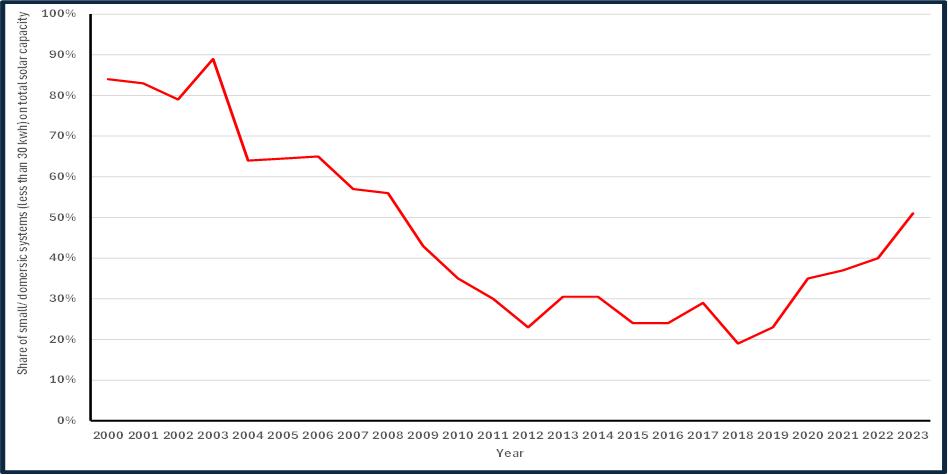
SOURCE: Vision on Fraunhofer ISE data
These four transformations proceed differently but as Chris Wright recalled, progress remains underwhelming. In 2000, 85% of global energy came from fossil fuels. By 2023 - after 23 COPs on climate and hundreds of commitments with huge public investments - this figure has only dropped to 81%. Moreover, a terrorizing cost has been estimated to ensure the transformations, which was calculated by a large consulting firm. It would require half of global tax revenues, even worse if considering that this estimate is usually exaggerated, and we are not able to properly define these transformations.
It was a mistake to tie the reasons of such ambitious transformations solely to combating climate change. In fact, transforming the way the world operates is also urgent because the world where the transformations were accomplished would not only be less polluted, but also be safer, less unequal and with cheaper bills. This world would be less dependent on dictators who live on fossil fuels. The world with a model less concentrated on critical resources is more stable. Three goals need a return to the stage of the investments by turning the costs and the model into a private capital driven sector.
It is a new challenge that is being launched by the latest generation of climate skeptics. There is the necessity to step back from prescribed answers and fierce pragmatism of those who want the results to speak for themselves. What we need is humility.
References
Grillo F., Rosa V., (2024) Is there a realistic approach to reforming the global governance of climate change? Link.
The Economist (2024) The energy transition will be much cheaper than you think. Link.
McKinsey (2024) The net-zero transition: What it would cost, what it could bring. Link.
IRENA (2024) World Energy Transitions Outlook 2023. Link.
IEA (2023) Tracking Energy Efficency. Link.
